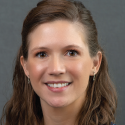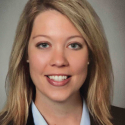“Congratulations! You have matched!” With Match Day in the rearview mirror and residency nearing an end, incoming fellows prepare for the next road trip on their journey to becoming a rheumatologist.
Residency molds new graduates into competent physicians by providing an overview of general medicine and teaching them the clinical and professional skills necessary to be independent practitioners. The exposure to subspecialties is often limited. Although residents are comfortable requesting a consult, they wake up in July and suddenly they are the consultant.
Subspecialty knowledge and experience can be limited during the first several months of fellowship, not unlike residency. Coupled with other life dynamics (e.g., relocation, a new institution, family changes, board exams), a whirlwind of anxiety overcomes many who transition into subspecialty training. Moreover, success in fellowship relies heavily on personal time management and accountability while maximizing opportunities specific to the development of future career goals. Following are five key categories to focus on:
1. Decide Early: Research or Clinical
There are two main tracks—research and clinical. A significant portion of pediatric specialty training is dedicated to research, hence the three-year duration. Many programs for adult specialties, on the other hand, focus predominantly on clinical training. To gain adequate research experience, a research track often requires an extra fellowship year, which requires additional funding. This may make it necessary for fellows to decide early if research is their intended direction.
An early decision allows for identification of a supportive mentor who can help secure funding and provide career guidance in addition to research training. Early development of a longitudinal project provides an opportunity to learn research methods, present data and, ultimately, publish. Fellows on a research trajectory should explore advanced degree options, such as a Master of Science in Public Health or a Master of Science in Clinical and Translational Research, to learn about epidemiology and biostatistics.
Finally, it’s important to plan for post-fellowship career development by applying for early investigator funding. Ideally, a successful clinical researcher will have a grant in place prior to fellowship completion; however, don’t be discouraged from a research path if funding is limited.
Fellows pursuing a clinical career must maximize clinical exposure during training while experts are easily accessible. This may involve adding more outpatient clinic time or spending more time on the inpatient consult service. Additional opportunities outside the training program, such as a musculoskeletal ultrasound course, may prove beneficial for future practice and make a fellow-in-training more marketable in the post-fellowship job search.
Fellows and program directors should work together to develop each fellow’s unique interests and incorporate them into the fellow’s training plan. And as their fellowship progresses, fellows should think about their preferred practice setting—private practice or academic. If interested in medical education, it is important to seek opportunities for medical student and resident teaching. Creating PowerPoint decks and preparing presentations can save time and make it easier when you’re asked to give a talk.
Identifying a career direction early allows fellows to individualize their specialty training, better preparing them for independent practice.
2. Maintain Work-Life Balance
Many residency programs are built on a rigid structure, but fellowship programs typically promote a more self-directed approach. Depending on the fellow, this can potentially result in slacking off. At the opposite end of the spectrum we find fellows who can’t turn off work mode, leading to a workaholic lifestyle. Because rheumatology is an outpatient-based subspecialty that provides consultative service, some days (weeks) during a fellowship will be busier than others.
The key to successful work-life balance lies in the creation of a personal schedule. Self-
assessments of motivation can help trainees determine whether they need more structure to avoid the idler or workaholic mentality. Don’t be afraid to ask your program director for help balancing the workload.
Successful work-life balance requires time dedicated to activities unrelated to and outside work. Whether single or married with children, all trainees should find activities they enjoy outside the hospital. For some, this may mean scheduling a date night with their spouse or attending a spinning or Pilates class. In our programs, for example, many fellows and faculty participate in local running races. Regardless of the activity, mental health and well-being should be a priority. A personal schedule that allows time for family, social activities and physical fitness should be established early during fellowship training.
Fellows and program directors should make it a priority to identify any mental health resources offered through their institution. As trainees discover in medical school and residency, life doesn’t slow down despite career advancement. Fellowship is no different. Having a solid work-life balance promotes positive mental health, which improves work performance and, thus, creates a happy, productive and compassionate physician.
3. Research Financial Resources
The choice to continue medical training through subspecialty fellowship bears a commitment to another two to three years of post-graduate training salary. Unfortunately, many trainees have significant educational debt. To add to the financial burden, relocation often involves moving costs, rental deposits or down payments. Trainees with children have the added expense of childcare.
The stress associated with financial hardship can interfere with fellowship performance and productivity. Fortunately, resources are available to help mitigate the financial burden. Pediatric rheumatology fellows committed to research can apply for the National Institutes of Health Loan Repayment Program, with applications due each November. Income-based loan repayment can also help trainees keep their loan repayments affordable. Likewise, early commitment to an underserved area may qualify a fellow for a stipend during training or loan forgiveness through such programs as Public Service Loan Forgiveness.
Graduate medical education offices also offer financial planning resources. Early in training, fellows should meet with a financial advisor to discuss current and future financial planning. It’s never too early to plan for retirement.
4. Establish a Network
Because rheumatology is a relatively small specialty, fellows should take advantage of opportunities to network with colleagues and form support systems and interest groups outside their home division. Numerous networking opportunities exist that are free or offer reimbursement for fellows in training. For example, the ACR/ARP Annual Meeting offers fellows in training travel scholarships and awards to subsidize the cost of attendance, and the premeeting FIT Educational Session, which helps fellows navigate the meeting and offers mentoring discussions via round tables, is held just prior to the start of the Annual Meeting.
The ACR’s State-of-the-Art Clinical Symposium and Winter Rheumatology Symposium are smaller conferences that showcase high-impact lectures. Many other conferences sponsored by affiliate societies offer fellows an opportunity to network with established clinicians who share a common passion, such as health policy reform or a specific research interest.
Twitter is an excellent (and free) way to network while sharing knowledge. Several esteemed clinicians and researchers take to Twitter to promote innovative manuscript findings, discuss challenging patients and socialize. Following @ACRheum and @ACR_Journals is a great way to start.
5. Remember the Passion
Although rheumatology is consistently ranked the happiest specialty (obviously), there will be tough times. The most important advice we offer all incoming fellows is to remember why you chose rheumatology as a career: because you love it and take pride in caring for patients affected by autoimmune disease. Find inspiration from your patients every day by listening and reflecting on their courage and bravery as they live and deal with chronic illness. This mindfulness brings us back to the humanistic side of medicine and will help you become a resilient, caring and passionate rheumatologist.
 Courtney Crayne, MD, is a pediatric rheumatologist at the University of Alabama, Birmingham/Children’s of Alabama and a member of the ACR Government Affairs Committee.
Courtney Crayne, MD, is a pediatric rheumatologist at the University of Alabama, Birmingham/Children’s of Alabama and a member of the ACR Government Affairs Committee.
 Amanda Schnell, MD (@schnell_amanda), is an assistant professor in the Department of Clinical Immunology & Rheumatology at the University of Alabama, Birmingham, and a member of the ACR Corporate Relations Committee.
Amanda Schnell, MD (@schnell_amanda), is an assistant professor in the Department of Clinical Immunology & Rheumatology at the University of Alabama, Birmingham, and a member of the ACR Corporate Relations Committee.



